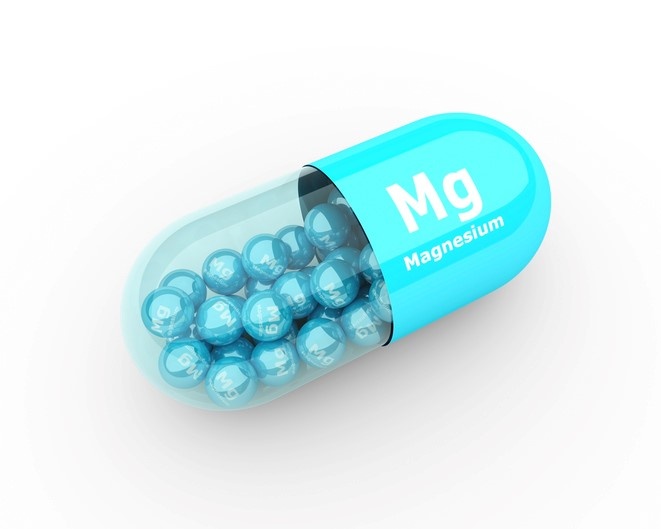Source: Vanderbilt University Medical Center Jan 01, 2019 7 years, 1 month, 3 weeks, 5 days, 12 hours, 10 minutes ago
A randomized trial by Vanderbilt-Ingram Cancer Center researchers indicates that magnesium optimizes vitamin D status, raising it in people with deficient levels and lowering it in people with high levels.
According to a recent study, published in the American Journal of Clinical Nutrition, magnesium may help in maintaining optimum vitamin D levels in the body. The randomised study that had 250 participants highlighted the importance of magnesium in preventing health conditions related to vitamin D levels. Magnesium plays a vital role in our day to day activities. This mineral is said to regulate diverse biochemical reactions in the body. "Magnesium deficiency shuts down the vitamin D synthesis and metabolism pathway," said the study's lead author Qi Dai from Vanderbilt University Medical Center in the US. In order to lead a healthy life, it is imperative to consume a healthy and balanced diet.
Magnesium stands out to be one such component that is essential for staying healthy. A few dietary tweaks may help you increase your magnesium intake to a great extent. Whole grains, dark chocolate, nuts, avocados and green leafy vegetables are excellent sources of magnesium. You can add them in your daily diet by eating them raw or in the form of curries.
Qi Dai, MD, PhD, Ingram Professor of Cancer Research, the study's lead author, described the ideal level as being in the middle range of a U-shape because vitamin D at this level has been linked to the lowest risk of cardiovascular disease in previous observational studies.
However, vitamin D was not related to cardiovascular disease in the recent VITAL trial. He and Martha Shrubsole, PhD, research professor of Medicine, Division of Epidemiology, are investigating the role that magnesium may play with cancer as part of the Personalized Prevention of Colorectal
Cancer Trial.
"There's a lot of information being debated about the relationship between vitamin D and colorectal cancer risk that is based upon observational studies versus clinical trials," Shrubsole said. "The information is mixed thus far."
They became interested in a role for magnesium because people synthesize vitamin D differently with levels of the vitamin in some individuals not rising even after being given high dosage
supplements.
The randomized study involved people considered at risk for developing colorectal cancer because of either risk factors or having a precancerous polyp removed. Doses of magnesium and placebo were customized based on baseline dietary intake.
"Vitamin D insufficiency is something that has been recognized as a potential health problem on a fairly large scale in the U.S.," Shrubsole said. "A lot of people have received recommendations from their health care providers to take vitamin D supplements to increase their levels based upon their blood tests. In addition to vitamin D, however, magnesium deficiency is an under-recognized issue. Up to 80 percent of people do not consume enough magnesium in a day to meet the recommended dietary allowance (RDA) based on those national estimates."
"A lot of people have received recommendations from their health care provid
ers to take vitamin D supplements to increase their levels based upon their blood tests. In addition to vitamin D, however, magnesium deficiency is an under-recognised issue," said Martha Shrubsole from Vanderbilt University Medical Center. A lot of people tend to synthesise vitamin D differently with levels of the vitamin; this is what made the researchers so interested about the role of magnesium.
"Up to 80 percent of people do not consume enough magnesium in a day to meet the recommended dietary allowance (RDA) based on those national estimates," she added.
Reference: Qi Dai, Xiangzhu Zhu, JoAnn E Manson, Yiqing Song, Xingnan Li, Adrian A Franke, Rebecca B Costello, Andrea Rosanoff, Hui Nian, Lei Fan, Harvey Murff, Reid M Ness, Douglas L Seidner, Chang Yu, Martha J Shrubsole. Magnesium status and supplementation influence vitamin D status and metabolism: results from a randomized trial. The American Journal of Clinical Nutrition, 2018; 108 (6): 1249 DOI: 10.1093/ajcn/nqy274
